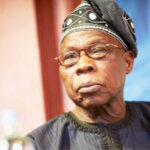My undergraduate project supervisor was a severe professor many students would rather avoid. He was prone to drama and drunk on power as the Head of the Department, and if there was a chance to avoid him, most students would rather do that. Somehow, I ended up as one of half a dozen students whose final year project he would supervise. All of us knew we were in for it.
At our first meeting, we presented our project topics. The man took every single one of them, turned it inside out, and flipped it on its head so that whatever you submit would be nothing but original. Because some students actually copy others’ projects and present them as theirs. My no-nonsense professor was too smart to allow that.
On the day I submitted my final project to him and set off, I was relieved that I was out of his grasp. He sent another student running after me to announce that the Prof. wanted me back in his office. Heart thumping, I returned and held my breath. He took his time, allowing me to wallow in my agony.
“Young man, wherever you copied your project from…” he began.
“But you know I did not copy it, sir,” I interjected.
“Shut up and listen to me,” he said. “I said wherever you copied it from, I just want you to know that you copied it very well.”
It was the best compliment he had ever given me.
I remember this story while reflecting on the recent brouhaha over President Bola Tinubu’s academic records. It would seem, to borrow the terminology of my old professor, that wherever it was copied from, it wasn’t copied very well.
President Tinubu’s choice to run for president has meant that the hounds of the Zuckervilles (with a bow to Conan Doyle) have come after him, persistently niggling at his heels every chance they get. And rightly so, too. He aspired to be president of a country, and he should come with distinguishable and true records.
At this time, if there is any doubt that President Tinubu attended the Chicago State University and graduated from the institution, those doubts should be at rest. CSU has categorically confirmed that he was indeed a student there between 1977 and 1979. They have issued receipts, as we say in Naija street lingo, to back these claims. But that doesn’t seem to be where the problem is.
The question of forgery and identity theft lingers over the president. Forgery is a breach of the criminal code and is grounds for the forfeiture of his office as stipulated by the extant law. Considering how hard the president has fought to be in that office, it is unimaginable for him to just throw up his hands and scream, “Enough with these pesky vermin!” before packing back to Bourdillon.
So, it seems there are some options before the president. One is to either sit tight or hope to ride it out and hope these ferocious winds will blow over, which they won’t. (I will get to the other options later.) Anyone who knows anything about the forces opposed to the president would know that is unlikely to happen. Atiku Abubakar, after losing the presidential election petition, filed a suit in the US demanding that the president’s academic record be made available to his legal team. That doesn’t seem like the actions of a man who would easily give up this fight. The president, on his part, tried to have restrictions placed on the records that Atiku’s legal team could be given access to. He lost that fight, and the records are now out in the public. Did they answer the questions that have been asked persistently about the president’s academic history? Some of them, yes. But they have raised others.
One of the first was that one of the academic records of the president indicated his gender as female. That might be a clerical error. And perhaps the same could be said about the misspelling of his name on the yearbook, for instance. Those who lived through the old typist era know how easily someone could make those mistakes. The CSU admission letter clearly indicated it was issued to Mr. (not Ms. or Mrs) Tinubu.
But there are more serious concerns here. That being the records from Southwest College from where President Tinubu transferred to CSU. His application to Southwest College indicated that he graduated from Government College, Lagos, in 1970. The school wasn’t established until 1974. The discrepancies also included the year of his birth. His CSU record shows a year of birth of 1954, two years after the year of birth he officially proclaimed. The implication would be that he was only 14 years old when he graduated from High School. The Math doesn’t add up. What is the probability of one person suffering so many clerical errors in his records? Why are the dates all over the place? Why was there a certificate from a school that hadn’t been established at the time? In essence, to return to the lingo of my old prof, wherever these documents were copied from, if that is what happened, they weren’t copied well.
No doubt, President Tinubu will remain a divisive figure in Nigeria. That is not entirely his fault because in Nigeria, with our many fractured lives and outlooks, it doesn’t take much to be divisive. But with a record that is half-in-the-shadow like his, combined with a career in politics and ferocious political opponents, it is not rocket science that sparks will fly.
The actions of both the president and his opponents have combined to shame Nigeria. That a foreign court had to sit in judgment over issues regarding our country’s elections is embarrassing enough. Just as it is embarrassing that this foreign judge had to order that the academic records of our president be made available. This would not have been necessary if the president hadn’t asked CSU to block access to his records. He has every right to, but I don’t think the circumstances warranted this stand. Of course, by FERPA laws, which every US academic has to sign every single year, the academic records of students are not to be disclosed to the public or even to students’ relatives, including their parents who pay for their education. But in a situation where the president has nothing to hide, he should have made relevant records available to the appropriate authorities, INEC, to save the country from all this drama and embarrassment.
I am not a fan of Atiku dragging our dirty laundry before a US judge, but we must understand that what he did was necessary, at least for his case against the president. In the process, it helped enforce the public’s right to know, which is a fundamental element in any democracy.
Now that these questions are out in the open, there are two options left. Allegations of forgery and identity theft have been made against the president. The legal maxim is that he who alleges must prove, and I suppose Atiku’s lawyers are working on building their case. However, the evidence suggests serious discrepancies in the documents that strongly suggest some truths in the allegations being made.
So, back to the options before the president. He could either come out and irrefutably prove that there was no forgery on his part or explain satisfactorily why these discrepancies exist in his record. We might need to go through a court process for this. The other option is to walk the path of Salisu Buhari and Kemi Adeosun, who were forced to resign from office when it was established that they forged certificates to serve in government.
Whatever choice is made, the right must be done in a clear and transparent way, and the interest of the country must be placed front and centre ahead of every individual’s needs or desires. Wherever we are copying this idea of a country from, we must copy it well.

 Join Daily Trust WhatsApp Community For Quick Access To News and Happenings Around You.
Join Daily Trust WhatsApp Community For Quick Access To News and Happenings Around You.


